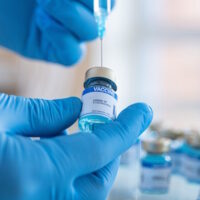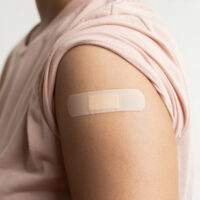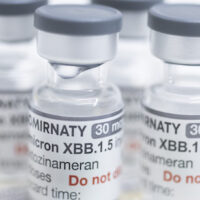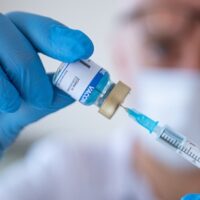An abundance of evidence indicates the mRNA COVID-19 vaccines are remarkably safe and work well to protect against severe disease. But last month, the state of Florida issued updated vaccine guidance advising “against the use” of the shots entirely — even for people who are older and at higher risk of severe disease. Experts say the advice is ill-informed and “illogical.”
Misconception: Distortions of Science
Still No Evidence COVID-19 Vaccination Increases Cancer Risk, Despite Posts
It has not been shown that COVID-19 vaccines cause or accelerate cancer. Yet opponents of the vaccines say a new review article “has found that COVID-19 mRNA vaccines could aid cancer development.” The review conclusions are mainly based on the misinterpretation of a study on mRNA cancer vaccines in mice.
Study Largely Confirms Known, Rare COVID-19 Vaccine Side Effects
An international study of around 99 million people confirmed known serious side effects of COVID-19 vaccination. It also identified a possible relationship between the first dose of the Moderna vaccine and a small risk of a neurological condition. Social media posts about the study left out information on the vaccines’ benefits and the rarity of the side effects.
Posts Misrepresent Mouse Study of Pangolin Virus
A study showed a type of lab mouse is highly susceptible to a coronavirus derived from pangolins, a scaly, cat-sized mammal. This doesn’t mean the virus is dangerous to humans. The virus is related to the one that causes COVID-19 but did not descend from it, contrary to claims that it is a “mutant COVID-19 strain.” Nor did scientists “craft” the virus.
COVID-19 Vaccination During Pregnancy Is Safe, Has Multiple Benefits
Being vaccinated against COVID-19 helps protect pregnant people from severe COVID-19. When given during pregnancy, the vaccines can also reduce the risk of hospitalization from COVID-19 early in a baby’s life. A new study adds to the evidence that vaccination during pregnancy is safe for babies, contrary to social media and online claims.
COVID-19 Vaccines Have Not Been Shown to Alter DNA, Cause Cancer
Small amounts of DNA from the manufacturing process may remain in the mRNA COVID-19 vaccines. Purification and quality control steps ensure any leftover DNA is present within regulatory limits. There isn’t reason to think that this residual DNA would alter a person’s DNA or cause cancer, contrary to claims made online.
Posts Falsely Push Bill Gates-Connected ‘Air’ Vaccine Conspiracy
Inhalable or spray versions of mRNA COVID-19 vaccines are still in development and don’t have regulatory approval. Posts online are distorting recent research from Yale University to falsely claim that governments have approved such products to mass vaccinate people without their consent in a plot involving Bill Gates.
Posts Push Unproven ‘Spike Protein Detoxification’ Regimen
Serious side effects after COVID-19 vaccination are rare, and there isn’t evidence people need to undergo a “spike protein detoxification” regimen after getting vaccinated, contrary to claims made online. Nor has such a regimen been shown to help people recover from long COVID, or long-term health problems after having COVID-19.
COVID-19 Vaccines Have Not Been Shown to Cause ‘Turbo Cancer’
People with cancer are particularly vulnerable to severe disease and death from COVID-19. Vaccines provide needed protection. It has not been shown that COVID-19 vaccines cause or accelerate cancer. Nor does a recent paper about a mouse that died of lymphoma “prove” that the Pfizer/BioNTech vaccine induced “turbo cancer,” contrary to social media claims.
Posts Exaggerate Significance of Swiss Study on Heart Risk and COVID-19 Vaccination
A Swiss study found that after a COVID-19 booster, less than 3% of people briefly had a slightly elevated blood level of a protein that can be a marker of heart injury. No one in the study had any serious heart damage, and other experts say the findings are unlikely to be clinically significant. Viral posts, however, are spinning the results to falsely claim that the study shows the vaccine’s risks are “off the scale.”









